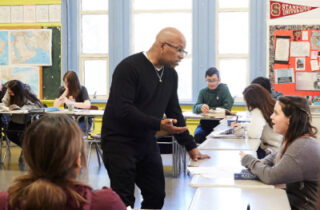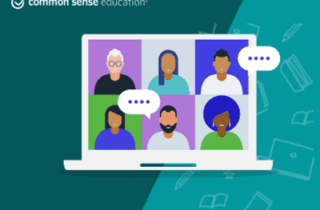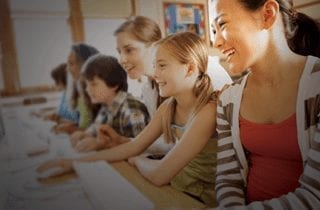Presented by Dr. Melissa Clarke, Physician, Author, Speaker, and Patient Advocate; and Brittney Smith, Senior Manager of Education Partnerships, News Literacy Project
Presented by Dustin Rimmey, Director of Speech and Debate and Social Sciences Teacher, Topeka High School (KS)
Moderated by Jennifer Ehehalt, Sr. Regional Manager, Midwest, Common Sense Education
Presented by Melody Dunn, M.Ed., Former Educator, Current Professional Learning Specialist, Frog Street
Why should professional learning be a part of every technology initiative? Because of equity, said the three leading superintendents on the edLeader Panel, “Creating and Leading a Professional Team of Lifelong Learners.”
Presented by Dr. Deborah Kerr, Superintendent, St. Francis School District (WI); Dr. John Malloy, Superintendent, San Ramon Valley Unified School District (CA); and Mr. Marlon Styles, Superintendent, Middletown City School District (OH)
Moderated by Ann McMullan, Project Director, CoSN (Consortium for School Networking) EmpowerED Superintendents Initiative
Presented by Barbara Pape, Senior Director, Learner Variability Project, Digital Promise; Jyoti Schlesinger, Vice President of Mission and Programs, Barbara Bush Foundation for Family Literacy; Sarah Cacicio, Director, Adult Learning, Digital Promise; and Rajinder Gill, CEO & Co-Founder, Essential Skills Program
Presented by Dan Frost, Digital Learning Partner, San Francisco Unified School District (CA); Devalin Jackson, Family Technology Support Instructional Designer, San Francisco Unified School District (CA); and Jamie Nunez, Bay Area Regional Manager, Common Sense
24/7 access to technology has brought many benefits, from online collaboration to improved parent-teacher communication. But that 24/7 environment has also brought increased stress to students’ lives as issues they encounter at school, especially on social media, follow them home. In the edWebinar “How Digital Stressors Impact Student Learning,” Jamie Nunez, Bay Area Regional Manager at Common Sense Media, explained what digital stressors are and how social-emotional learning (SEL) can be used to combat them.
This edWebinar will define and understand the digital stressors that kids are facing in digital spaces, such as social media and gaming platforms.
Join our edWebinar to explore, discuss, and experience research-informed, classroom-tested approaches to stimulate lifelong reading habits in K-12 students.









